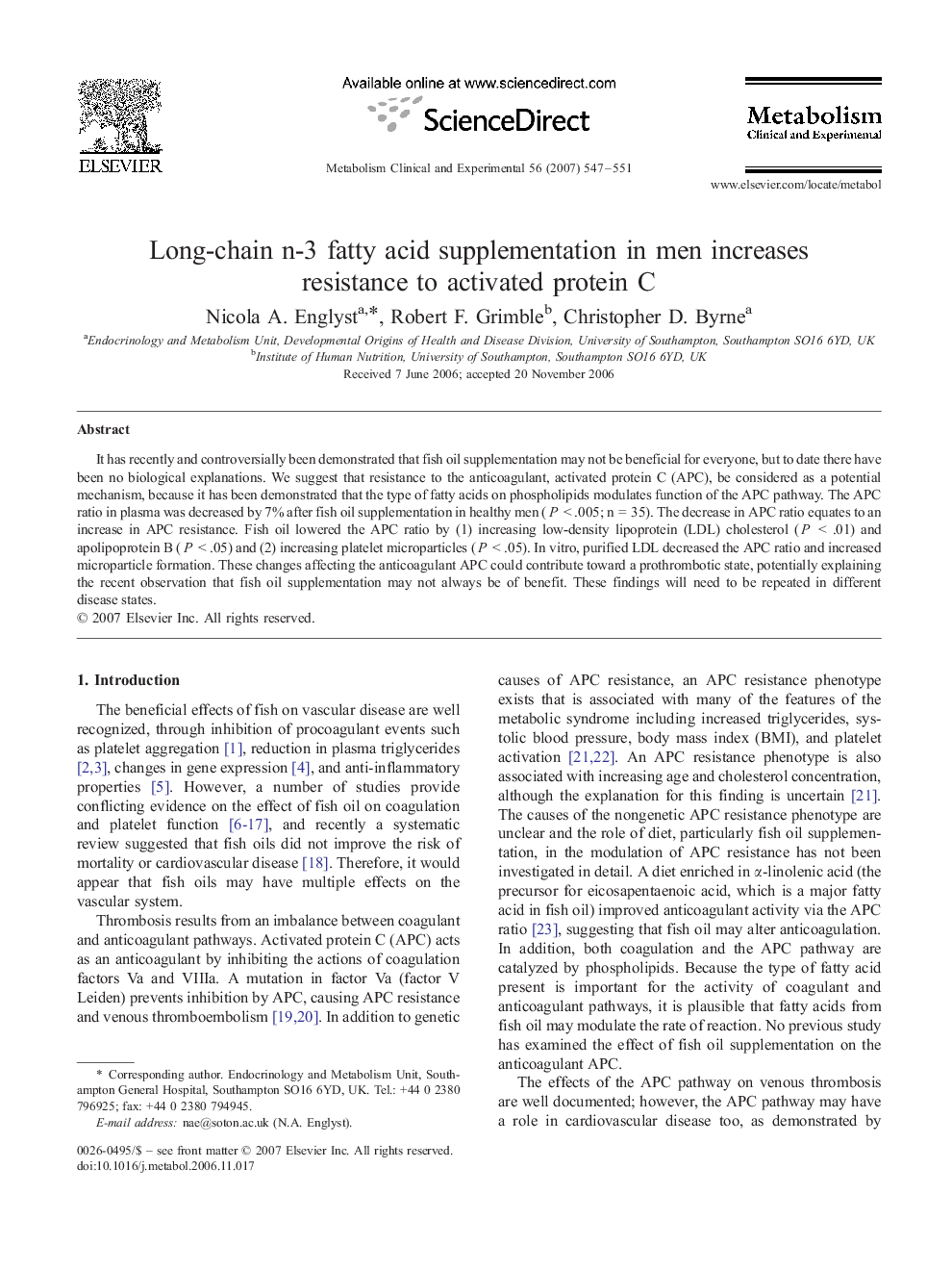| کد مقاله | کد نشریه | سال انتشار | مقاله انگلیسی | نسخه تمام متن |
|---|---|---|---|---|
| 2807830 | 1157196 | 2007 | 5 صفحه PDF | دانلود رایگان |

It has recently and controversially been demonstrated that fish oil supplementation may not be beneficial for everyone, but to date there have been no biological explanations. We suggest that resistance to the anticoagulant, activated protein C (APC), be considered as a potential mechanism, because it has been demonstrated that the type of fatty acids on phospholipids modulates function of the APC pathway. The APC ratio in plasma was decreased by 7% after fish oil supplementation in healthy men (P < .005; n = 35). The decrease in APC ratio equates to an increase in APC resistance. Fish oil lowered the APC ratio by (1) increasing low-density lipoprotein (LDL) cholesterol (P < .01) and apolipoprotein B (P < .05) and (2) increasing platelet microparticles (P < .05). In vitro, purified LDL decreased the APC ratio and increased microparticle formation. These changes affecting the anticoagulant APC could contribute toward a prothrombotic state, potentially explaining the recent observation that fish oil supplementation may not always be of benefit. These findings will need to be repeated in different disease states.
Journal: Metabolism - Volume 56, Issue 4, April 2007, Pages 547–551